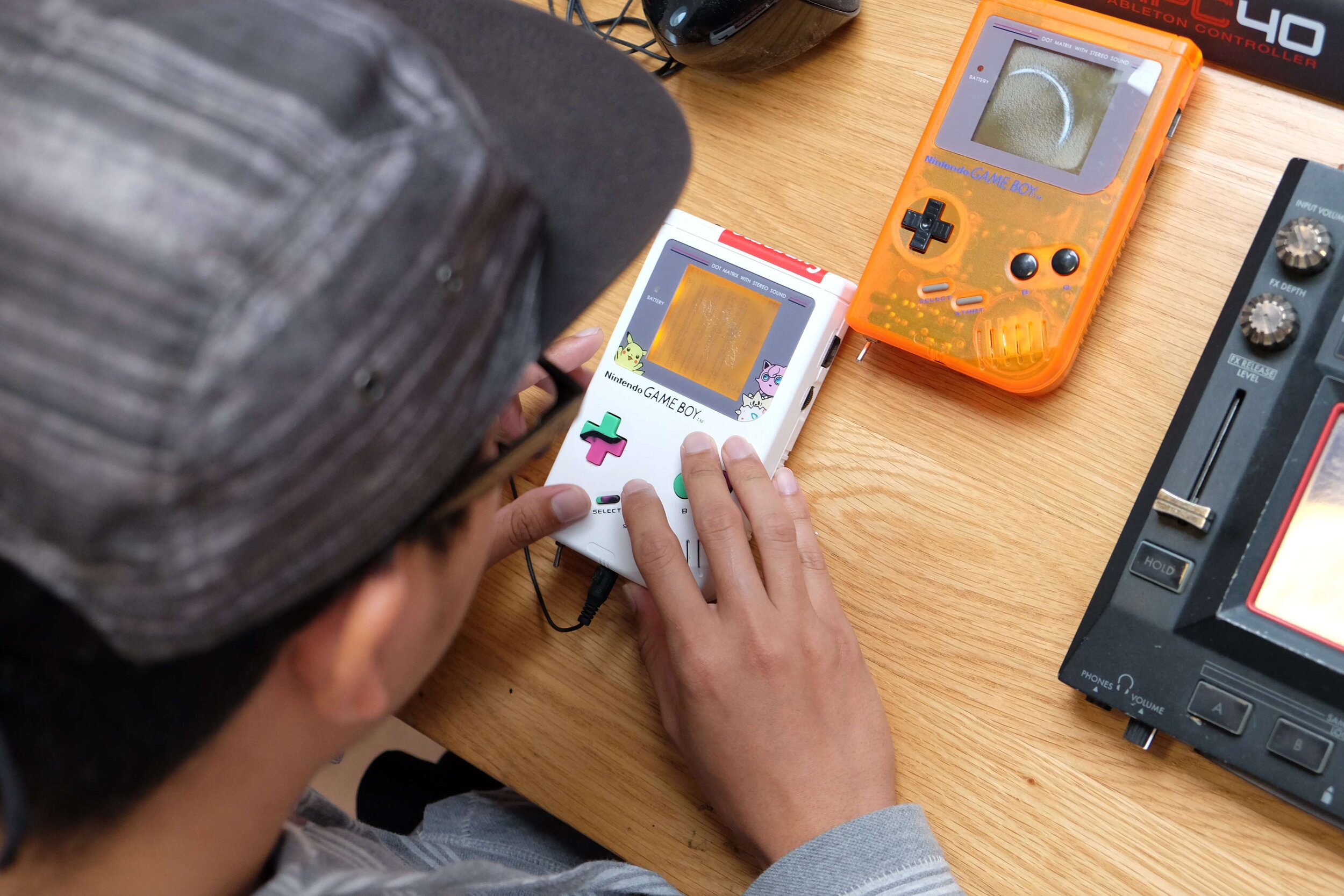The Musician Behind the 8-bit Chiptune Version of Mr. Brightside, Que Izham
(First published as part of the festival blog for the Johor Bahru Society of Performing Arts, 2017)
Imagine playing Mario on your Gameboy, and mixing and matching the sound effects into a head-bopping tune. Before you know it, BAM! you’re a chiptune musician!
Of course, it’s not as easy as it sounds. Born and raised in Selayang, 24-year-old chiptune musician Que Izham has been exploring the ropes of electronica music since graduating high school in 2010. Highly inspired by the London chiptune scene, the chiptune bug got him 5 years later. Despite being busy automobile supervisor by day and a musician by night, Que managed to release an EP of his own tracks on Spotify recently, called Empty Cartridge, we just couldn’t wait to make him our kawan.
With the power of Twitter and a few emojis, we managed to get hold of this busy man and catch up with him over some ice cream last week.
Can you tell us a bit about yourself and how you started making music?
My first contact point with making music was playing the drums when I was 15. I was in a too-cool-for-school band with my mates in school but the band drifted apart after graduation as everybody focused on different career paths. In college, I stumbled upon this band called Delphic and was totally taken over by their unique sound, something I had never heard of before. I was studying them like an academic journal and that was when I dipped my feet into the different wavelengths and software of electronic music.
What flipped your chiptune switch?
The Chiptune scene in Malaysia was getting a lot of heat in the years 2008-2009, but the hype died down as the number of chiptune musicians decreased over those years. With that said, the chiptune scene overseas is still very much alive. It wasn’t until I heard some tracks from Sabrepulse that I began making my own tracks in 2015.
First ever show?
My first ever gig was in 2015 where I played at a university event. Although I was playing to a bunch of hyper university students, I was nervous. It was my first time playing chiptune to a relatively huge crowd who were going to judge me based on my music! Of course, it wasn’t as bad as I had played out in my mind. As I made more music and played a few more gigs after that, I grew more confident in front of a crowd and learned to share my music with an open mind and an open heart.
Tell me more about Empty Cartridge.
Empty Cartridge is a collective of songs I’ve made for quite some time now. There are 7 tracks on the album, which consists of a re-imagination of pop songs and some original mixes. My first song was Mr. Brightside by the Killers, which is also in the EP.
What does one need to create Chiptune music?
People think that all you need is a Gameboy and you’re good to go. But the truth is that the setup is way more complicated than a regular electronica setup. Double the wires, double the converters.
Can you tell us more about your creative process? And how long does it take usually to go through that process?
Usually, I get inspiration right before I fall asleep, so I make it a habit to have a Gameboy near me. So, once a light-bulb moment hits me, I put together the ideas with my Gameboy, extract the melody and mix them on my laptop. Once that’s done, I sleep and get back on it the next day. Depending on the song, I take around 3 months to be fully satisfied with a song. I guess I am quite the perfectionist!
Having played gigs in KL and JB, what are the differences between the two scenes?
Between the two cities, I think they are both equally booming. Having been here in JB for about a year now, I’ve grown to love the thriving arts scene in JB. It’s a rather close-knit community here, so it’s easier to get to know of new acts and upcoming performers. Furthermore, Chiptune music is a rather fresh concept in JB, so I do get a bit more hype here as it’s a new thing everybody wants to know more about.
Do you have any forthcoming projects you’re particularly excited about?
I’m currently working on a project with R&B soul-songstress, Sasha Ningkan from Kuching, Sarawak. It’ll be quite exciting to see how the two genres which are like polar opposites, converge to make something extraordinary.




